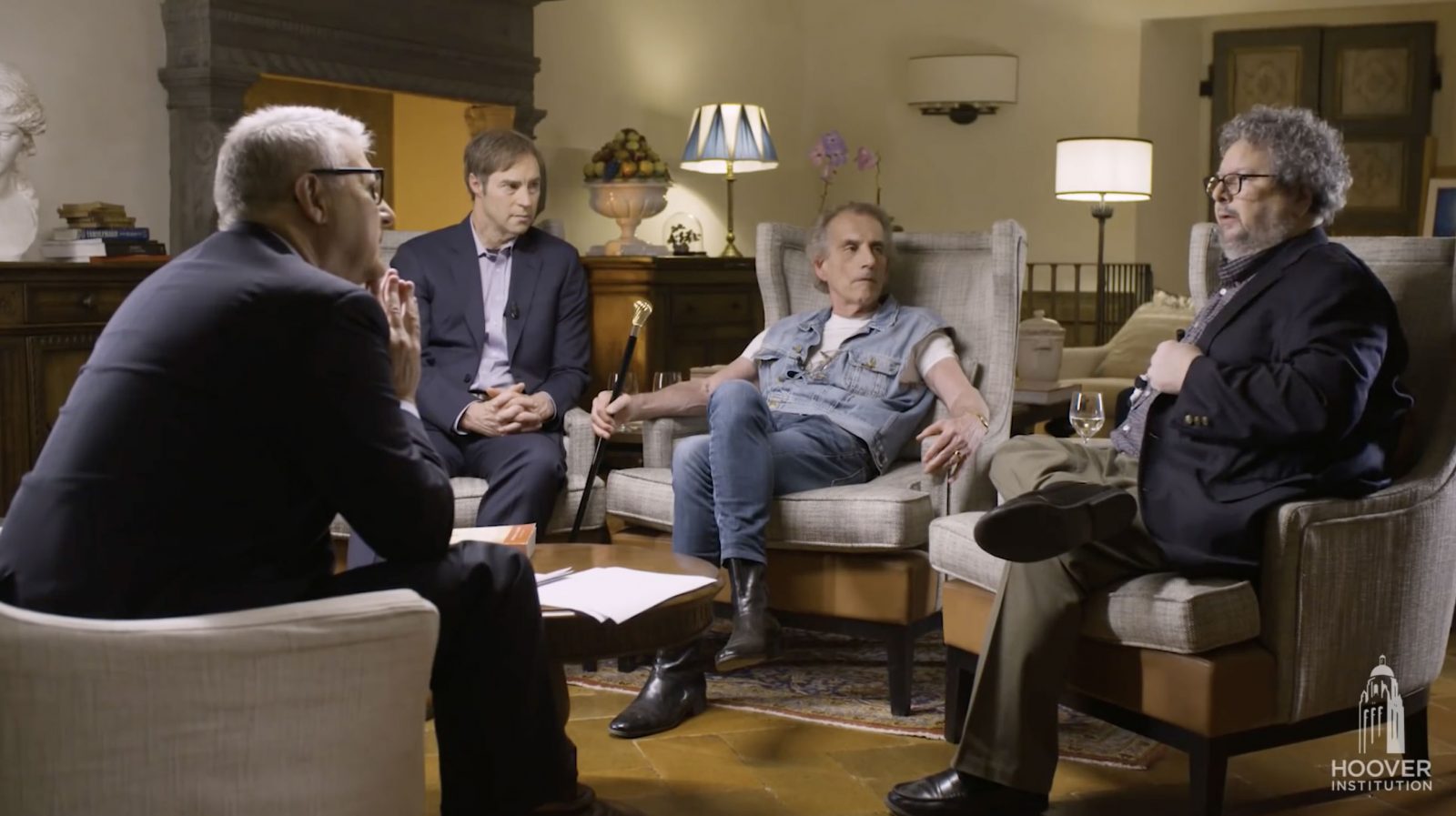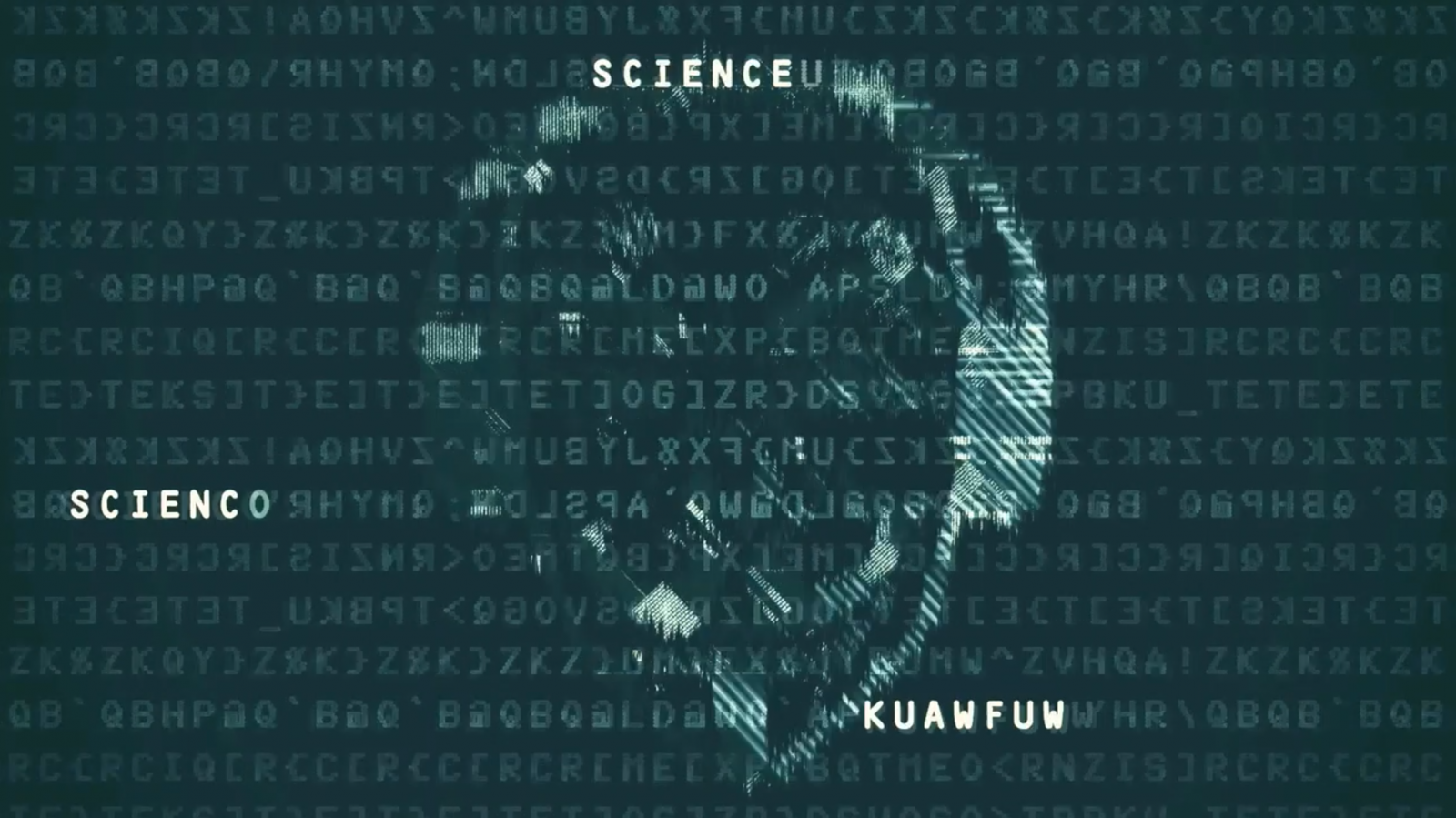


Gelernter, Meyer, Berlinski Deny Darwinism, Pt. 3
On this episode of ID the Future we hear the final portion of a three-part series featuring Discovery Institute’s Stephen Meyer and David Berlinski along with distinguished Yale computer science professor David Gelernter, who recently gave up Darwinism thanks in part to their books. Led by Uncommon Knowledge host Peter Robinson, they discuss the hard problem of consciousness, how Darwinism functions as a religious dogma that punishers dissenters, and whether biology can ever “get over Darwin and move on.” This interview is presented here courtesy of Peter Robinson and the Hoover Institution.

Meyer, Berlinski and Yale’s David Gelernter Challenge Darwinism, Pt. 2
This episode of ID the Future features Part 2 of Peter Robinson’s conversation with Yale computer scientist David Gelernter and Discovery Institute senior fellows Stephen Meyer and David Berlinski.
Read More ›
David Gelernter, Stephen Meyer, David Berlinski Challenge Darwinism, Pt. 1

The Modern-Day Phlogiston: Darwinism Explains Everything and Nothing
On this episode of ID the Future, Andrew McDiarmid reads an excerpt from Heretic: One Scientist’s Journey from Darwin to Design by Finnish bioengineer Matti Leisola and Jonathan Witt. It makes the case that modern neo-Darwinism is today’s “phlogiston,” a theory that explains everything but nothing, faces mounting contrary evidence, and survives only with ever more ancillary hypotheses. In the excerpt Leisola and Witt also discuss the well-documented pattern of scientists defending an existing scientific paradigm even after fresh discoveries have turned against it, with the obsolete dominant paradigm dying only very slowly. An especially dramatic and tragic example gave the name to this all-too-human tendency — the Semmelweis reflex. Listen in to learn more.

Stephen Meyer’s Advice to Science Students
On this episode of ID the Future, Stephen Meyer, director of Discovery Institute’s Center for Science and Culture and author of Darwin’s Doubt, gives advice to students and recent graduates interested in intelligent design. He encourages students to recognize how pervasive philosophical naturalism is in the academy; master the material; do good work; and stand firm. When should you keep your head down, letting discretion be the better part of valor, and when should you speak out, publicly supporting the case for intelligent design? Meyer also offers advice about this.

Marcos Eberlin on Evolution’s Water-Gate Problem
On this episode of ID the Future, internationally distinguished scientist Marcos Eberlin, author of the new book Foresight: How the Chemistry of Life Reveals Planning and Purpose, talks about evolution’s “water gate” problem. There’s no conspiracy here, just life’s astonishing answer for admitting water into cells through “gates” while keeping lethal acidifying proteins out. There’s also a chicken-egg problem involving proteins and molecular chaperones. That and more, Eberlin argues, add up to the conclusion that life required foresight.

Jonathan Witt Talks Science Uprising and More with Jerry Newcombe
Today’s episode of ID the Future brings you a conversation between Discovery Institute senior fellow Jonathan Witt and radio host Jerry Newcombe, originally presented on Newcombe’s nationally syndicated radio show. The two begin by discussing the Discovery Institute’s Science Uprising video series, which Jonathan helped create. From there they go on to talk about philosophical materialism, free will, morality, and what it means to be human. They touch on the Darwinian opposition, and on the rising threat of censorship.

Neurosurgeon Uprising, Pt. 2: Egnor Takes on Mind/Brain Materialism
On this episode of ID the Future we hear a neurosurgeon’s view on materialistic bias afflicting the entire field of neuroscience. It’s a bias, he argues, that leads some scientists to misunderstand the meaning of their experiments. Darwinists “allergic to teleology” ignore clear evidence that purpose is essential to the mind. This talk is bonus material accompanying the action-filled and thought provoking series of short videos on science and materialism at scienceuprising.com.
